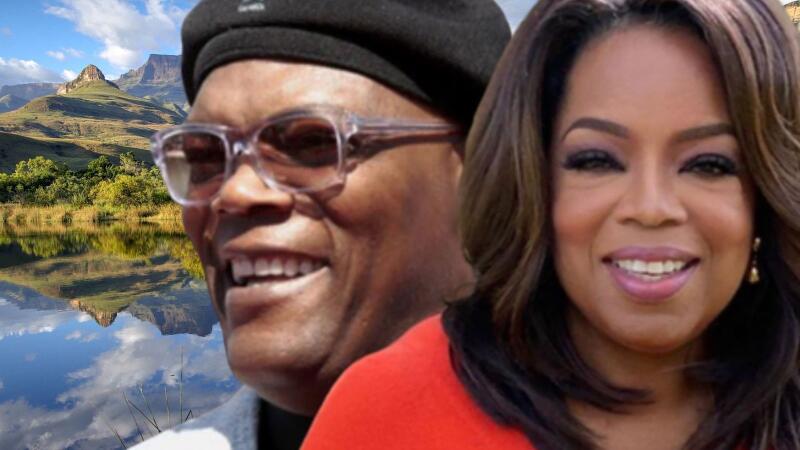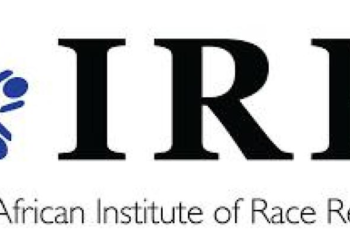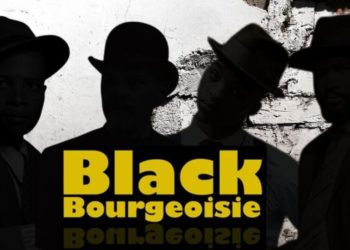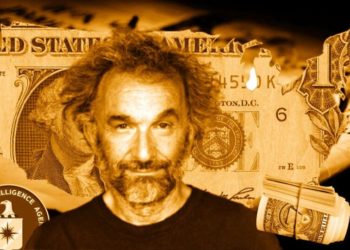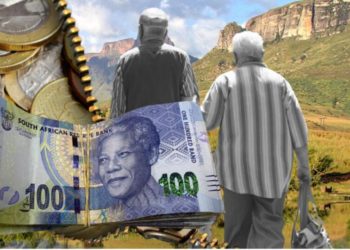Instead of fighting for the emancipation of victims, science is used to deflect people from the call for reparations and other forms of compensation that violators vehemently oppose with their lives. Oprah Winfrey, for instance, once declared she had Zulu ancestry. DNA results for actor Samuel L Jackson allege his ancestors came from Gabon’s Benga tribe. Photos: Supplied
Siyabonga Hadebe
FREELANCE journalist Howard Wolinsky reasons that “the sequencing and analysis of ancient human DNA has helped to rewrite human history”. He also claims that “it is also tempting politicians, nationalists and supremacists to abuse this research for their agendas”.
The debate about science and society is not new but there is a need to once more bring the discussion to the fore one more time.
My interest is in the use of DNA to qualify and or disqualify occurrences and events that took place. Slave trade is one phenomenon that has relied on the manipulation of facts to fit certain narratives.
Genome research has played a part in advancing agendas and absolving others from the gross violations as well as concealing the footprint of the damage caused by beneficiaries of the primitive economic practice of trading in humans.
In recent years, so many high-profiled black people from the diaspora, particularly in America and the Caribbean, have come out to declare their “love” for Africa. These individuals also want to trace their roots, and to do this they rely on the DNA to navigate this personal journey. M
ysteriously, this pseudoscience pretends to have all the answers whereas it entrenches misinformation, propaganda and lies.
Major Limitations
That now gets us to one of the major limitations of DNA tests. As people, we want them to tell us who we are and where we are from, but the “where” can be especially tricky. To understand why, we must look at how the tests work, and what they are.
Euro-science, and where modern genome research belongs, is nothing but a political tool that is designed to create economic and political advantages for the Aryan race; and should therefore be always treated with suspicion.
Gina Paige, the co-founder of africanancestry.com, a genetic ancestry tracing company that was started with the express purpose of helping people of African descent answer questions about their roots.
Paige adds that we all have DNA in every cell of our bodies, and 99.9% of every human’s DNA is the same.
“In that 0.1% of our DNA is where our differences lie,” Paige said. “Our hair texture, our skin colour, our height, our weight, our personality… Ancestry can be found in those differences.”
There are, however, two challenges with the DNA “banks”. First people share DNA – there is probably nothing that makes a Xhosa or Venda people different, or there is no difference between the Kikuyu in Kenya and the Zulu in South Africa or even the Duala people in Cameroon. The differences between the groups are based on human constructs such as language, culture and other irrelevant features.
Another challenge is that not all humans (7.5 billion people worldwide) have been “mapped” for DNA purposes, and thus most of the major DNA companies, especially in America, have databases in which people of European ancestry are overrepresented, and those of other regions are underrepresented. In 2018, for example, the database named 23andMe could match people to only three broad regions in sub-Saharan Africa – which means, if one is Black, it is almost impossible to get very specific results.
Haze of Smoke
The DNA tests are like a haze of smoke when looked at in wider contexts. Since they are inaccurate, they cannot help to answer some key questions like “Who were my people?”, “Where did people reside before the transatlantic slave trade?”, or “What were their cultures, cultural practices, their traditions, their values, their beliefs?”
Funny enough, the experts think that one can obtain this information, Paige says, “when you know the tribe or the ethnic group”.
Most people from the African diaspora are like all people who were removed from and or left their places of origins many centuries ago, like the Ngoni (Zambia, Malawi and Tanzania), Ndebele (Zimbabwe), BaLozi (Zambia), Boers (South Africa), Germans (Brazil or the US), and so-called Turcos in Latin America.
They all yearn for a place they rarely know, which they also presume has not changed. For example, the Ndebele and the Ngoni would like to believe that they are “Zulu” because they originated from what is now called northern KwaZulu-Natal.
The dilemma in this thinking is that people and places are static whereas there are many factors that may have drastically affected the population since the days their ancestors lived back at “home”. For example, the Zulu construct is a recent phenomenon and therefore cannot be used as a point of reference.
The mega tribe creation project during colonialism altered the identities of people who are now classed under large groups such as Zulu, Xhosa or Shona. The process of tracing the roots is cumbersome for the Ndebele and the Ngoni who only “left” under two centuries ago.
Kidnapped
The black diaspora was kidnapped in a period stretching over 500 years. Much like the Ngoni and Ndebele, they may also be unaware that so much changed in the places of their presumed origins, that includes identities, languages and cultures.
The people have also been moved from their areas and are also mixed with others. For example, the Ndebele is an agglomeration of many groups such as Hlubi, Ndwandwe, Sotho and Venda-speaking groups and so on. There is therefore nothing much to be learnt from movements such as Mthwakazi – ethnic purity is as flawed as racial purity.
Colonialism displaced scores of people across the continent, and the post-colonial state in Africa has not even tried to do anything about this.
Without sounding cynical or pessimistic, Black Americans use DNA testing to know their past that has been tampered with and destroyed. The DNA tests which claim to relocate them to the Mandinka, Fulani or Wolof peoples of West Africa could be simply described as a drive to a home that never was.
The African diaspora may have originated from anywhere in Africa, the DNA is a directionless campus that cannot be trusted.
Bessie Lawton argues that “identity is fluid, and people use a lot of different things or data points to negotiate their own identity internally and externally, (and) that includes family narratives, their lived experience, what others ascribe to you, and their DNA profile. And a lot of this identification is formed through interaction with others.”
Thus, DNA or genome sequencing is probably the biggest bullshit of modern times. It is garbage that seeks to mislead and also gives false hopes. The truth is that no one can trace back the footsteps of the slave trade and colonialism: so much was lost, and no one knows the scale of the loss.
Valuable Clues
Whether the DNA results reveal for large groups, again using the American context, “that just means a geneticist ran your DNA through an algorithm with the reference DNA in different combinations to get a similar variation of SNPs that you have”.
A computer can never give a perfect match, but it is just its best guess. In concurrence, Paige remarks that DNA can “hold a lot of valuable clues, but it can’t tell the full story”. The DNA tests lack specificities, otherwise, such things as tribalism and racism would have long died.
Scholars such as Walter Rodney have attempted to investigate how Europe “underdeveloped” Africa, but such studies could not even scratch the surface like the DNA tests fail to point anything besides confirming that Black Americans are black.
In some instances, these tests confirm large scales of rape that took place at the time. However, no one can be held accountable for such heinous acts as well as other abuses. In fact, the offspring of the perpetrators, who today claim to be “civil” and “righteous”, prefer to see things as they are.
No one really wants to bear the responsibility for the slave trade, whether the West or Arabs, everyone would rather prefer that the victims let bygones be bygones. The horror, injustices and brutality involved in the hunting, sales and transportation of people were far worse than imagined. Scores of people died at sea and many more perished from hard labour, illnesses and maltreatment. Profits were made from the slave trade, colonialism and apartheid and these exist on the same continuum. The ill-gotten gains developed today’s “rich world” and its citizens.
Human Advancement
Capitalism is dirty with all its claims for human advancement and progress. Slave trade is not the only thing the self-installed rulers of the world would like to see quickly forgotten using science to cover their tracks.
Environmental degradation is another crime that is now expertly covered using the climate change agenda. In the same way as the slave trade, industrialisation occurred at the expense of subalterns who are now supposed to share the burden. The obsession with DNA testing helps shoulder the damage by the African diaspora for something that they will never uncover or comprehend.
The transatlantic slave trade began around 1492 and continued into the early 20th century. It was a barbaric, primitive and unco-ordinated exercise that affected millions of people across Africa.
Arguably, no single space in the continent was not affected but the extent of how people were impacted will forever remain unknown. And one strategy to hide this horrific treatment of a people is using the DNA. It tries hard to refocus the damage of the slave trade when it was broad and hurricane-like.
Oprah Winfrey, for instance, once declared she had Zulu ancestry. Did the Zulu even exist in 1688? DNA results for actor Samuel L Jackson allege his ancestors came from Gabon’s Benga tribe.
Commercialism and yearning for political relevance motivate the studies on the genetic ancestry and accompanying databases, especially when it comes to the African diaspora and native Americans. Instead of fighting for the emancipation of victims, science is used to deflect people from the call for reparations and other forms of compensation that violators vehemently oppose with their lives.
With the DNA, the perpetrators want to pretend that slaves were harvested in fewer places and that the trading was limited. In this regard, there is a dominant school of thought that people were mostly removed from particularly West Africa, and the west coast in general.
While this may be somewhat true, there is no evidence to suggest fewer people were harvested in the south, centre, east and north. The issue here is that no records were officially kept on the numbers that were displaced, killed or eventually transported overseas.
Targets the Rich and Famous
The DNA is promoted as if it can determine who was taken from which part of Africa and also targets the rich and famous blacks to mislead. The purpose is to give the slave trade a humane face and to bury millions who cannot participate in this sequencing forever from history.
First of all, the mostly poor black people in the Americas are treated as “invisible” citizens in places such as the US (see Alabama, Carolinas, Texas, and Georgia), Colombia and Brazil. They will never ever be included in databases to know their origins.
Second, scores “disappeared” under the miscegenation or “mestizaje” policies in Argentina, Mexico and other territories.
Third, thousands intermixed with Europeans in Chile, Portugal (Madeira) and the rest of Europe, and this is something racialist Europeans would want to deny.
Fourth, those who were taken to the east are least known and remain hidden. For example, countries like Iran, India, Malaysia, Indonesia and China received millions of slaves that cannot be accounted for due to many reasons. All these people have withered and cannot be traced.
My point is that the mere fact that DNA tests tell something, they explain nothing at the end of the day.
Eske Willerslev explains that “extremists use and abuse the findings from genetics research to advance their political agendas and national narratives”. At the same time, DNA research is believed to be contradicting the worldview of racial supremacists and traditional cultures because it points to a single human origin in Homo sapiens.
However, the reality is that the global racial identity remains stacked against those with darker skins who were subjects of the slave trade and other invasions.
There is a long history pertaining to the abuse of science for politics. From China and Israel to India and Scandinavia, the contestation involves a typical game of “who came first”. It also entails providing evidence that has fit into the dominant political agendas: narratives are more important.
Siyayibanga le economy!
Based in Geneva, Siyabonga Hadebe is an independent commentator on socio-economics, politics and global matters.


